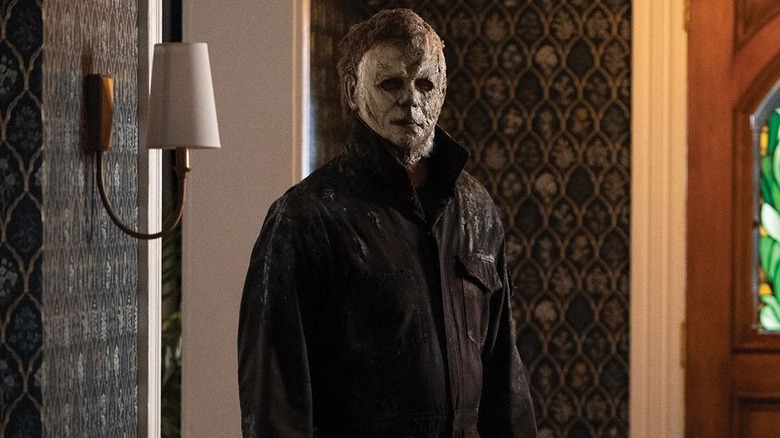Peacock Lost $2.5 Billion Last Year And Will Lose $3 Billion This Year – How Is This Sustainable?
In the age of the streaming wars, not everyone is going to win. Heck, given what happened in 2022, it's easier to imagine that almost everyone is going to lose, what with Netflix losing so much of its value and HBO Max getting caught in Warner Bros. Discovery's extreme cost-cutting measures. Somewhere in the middle of the pack is Peacock, NBCUniversal's big streaming play controlled by Comcast. The company reported its fourth quarter 2022 earnings recently and, safe to say, they are a long (long!) way from Peacock becoming a profitable venture for them.
Per CNBC, losses attributed to the streaming service totaled $2.5 billion in 2022, which was actually in line with expectations put forth by Comcast. That number includes $978 million worth of losses from the fourth quarter alone. What's more — and what hurts the most — is that the company said it expects losses to total $3 billion for Peacock in 2023. The good news (?) is that those losses also represent an expected peak, meaning that the figure will likely decline from 2024 onward, hopefully towards something resembling a profit. Or, at the very least, a figure more easy to stomach from a loss perspective.
Meanwhile, Peacock is lagging pretty badly as far as subscribers go, with 20 million paid subscribers as of the end of the fourth quarter of last year. While that represents an increase of around five million subscribers from quarter-to-quarter, you're still looking at a landscape where Netflix has 230 million subscribers globally, with HBO Max and Discovery+ having a combined 92 million. Not to mention Disney, which has more than 235 million across Disney+, Hulu, and ESPN+. Point being, Peacock has a long way to go.
The math doesn't add up
It is no secret that building up an attractive library of movies and TV shows for a streaming service is expensive. It took Netflix years to do it. The problem is that 2022 made Wall Street much less bullish on the "get subscribers at all cost" mentality. Part of that has to do with the fact that the box office is improving. Another part is that the streaming landscape is crowded and getting to profitability is more challenging than ever. Whatever the case, the notion of going all-in on streaming may no longer be the recipe for success it was perceived to be in 2020 and 2021.
For Peacock, the numbers just don't seem to add up. Losses of that size against subscriber numbers that pale in comparison to the competition are hard to justify. And, in reality, few (if any) of the streamer's original shows or movies are breaking through in the way that Netflix's "Wednesday" or Prime Video's "The Boys" have. That is very likely why they sacrificed all-but-guaranteed millions at the box office by releasing "Halloween Ends" on Peacock the same day it went to theaters. How much did that help to juice subscribers? It's tough to say, but they were feeding an enterprise losing billions rather than adding more to the profits generated by the slasher sequel theatrically.
With 20 million subscribers paying, at best, between $4.99 and $9.99 per month, with many others paying less on extended trials or annual deals, the numbers are unkind. Even if every single one of those paying subscribers were paying $9.99 per month, which they aren't, that only gets you to a little less than $2.4 billion per year — far less than the current, reported losses. The math is very much not in Comcast's favor here.
Cord cutting is still a reality, so what's the endgame?
Unfortunately for a company like Comcast, in particular NBCUniversal, they have to have eyes on the future. Cord cutting is accelerating at a rapid rate, with more people shifting towards the ever-increasing streaming options available to them. Just look at the fact that DirecTV lost the NFL Sunday Ticket rights to YouTube and, subsequently, laid off huge portions of its staff. The future is, at least very largely, going to be driven by streaming — not by cable or traditional over-the-top TV.
That's why Comcast must invest in streaming, and why they're pouring so many resources into Peacock. But can that service truly compete in the larger streaming landscape? For how long can the company stomach absolutely eye-melting losses like this? It's a big question with no definitive answer right now. Though Comcast President Mike Cavanagh had a rose-colored outlook during the earnings report:
"We spend quite a bit of money creating content. So migrating some of that content as eyeballs move to a more streaming universe, we like what we're doing and we had a phenomenal year getting paid subscribers to 20 million."
Maybe Peacock won't make it. Maybe Comcast has a longer play on the backburner that we're unaware of. Maybe there's another big media merger coming our way in the future, such as a purchase by Apple, or a purchase of Netflix. It may sound crazy, but we're getting closer to figuring out who is going to make it and who isn't in the streaming wars. Deals will be made as it devolves further into a kill or be killed landscape. For now, investors have to stomach streaming losses in the billions for the foreseeable future.


